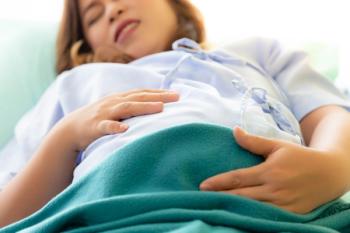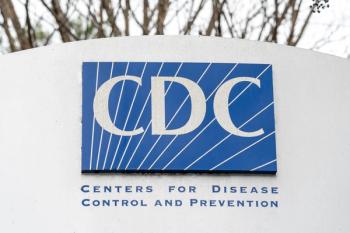
Are antibodies from the COVID-19 vaccine found in breast milk?
Robust secretion of SARS-CoV-2 specific IgA and IgG antibodies were found in breast milk of breastfeeding women for 6 weeks after the first of 2 vaccinations against COVID-19.
Robust secretion of SARS-CoV-2 specific IgA and IgG antibodies were found in breast milk of breastfeeding women for 6 weeks after the first of 2 vaccinations against COVID-19, according to a
The prospective study from Israel also concluded that IgA secretion was evident as early as 2 weeks after vaccination, followed by a spike in IgG after 4 weeks, or the equivalent of 1 week after the second vaccine.
“Israel was among the first countries to undertake a nationwide vaccination program against COVID-19,” said principal investigator Ilan Youngster, MD, MMSc, director of pediatric infectious diseases at Shamir Medical Center in Zerifin, Israel. “Initially, high-risk groups were targeted, including healthcare personnel, many of whom are women with young infants at home.”
As a result, Youngster and his colleagues promptly received a barrage of questions about the safety of being vaccinated while breastfeeding, and any potential benefit to the baby.
“On a national level, it was decided that in spite of the lack of information, breastfeeding women should be vaccinated,” Youngster told Contemporary OB/GYN®. “Thus, we decided to conduct a study to examine whether anti-SARS-CoV-2 antibodies are secreted into breastmilk, and whether any infant adverse events are described.”
The study was conducted at Shamir Medical Center; however, the 84 women were recruited from all over Israel, mostly through social networks of health care workers who were residents, between December 23, 2020, and January 15, 2021.
The women had a mean age of 34 years and their infants 10.32 months old. All participants received 2 doses of the Pfizer-BioNTech vaccine, 21 days apart.
Breast milk samples were collected before administration of the first dose and then once weekly for 6 weeks, starting at week 2 after the first dose. A total of 504 breast milk samples were analyzed.
The mean levels of anti-SARS-CoV-2 specific IgA antibodies in the breast milk increased rapidly and were elevated by 200% at 2 weeks after the first vaccine. Overall, 61.8% of samples tested positive at 2 weeks, increasing to 86.1% at week 4 or 1 week after the second vaccine.
Mean levels remained elevated for the duration of follow-up.
Conversely, anti-SARS-CoV-2-specific IgG antibodies remained low for the first 3 weeks, with a significant increase at week 4, when 91.7% of samples tested positive, then increasing further to 97% at weeks 5 and 6.
No mother or infant experienced any serious adverse event during the study period.
“The results did not surprise us because we expected both IgA and IgG to be found in high titers in the breastmilk,” Youngster said. “We frankly also did not expect to see any adverse events in the babies.”
For other respiratory diseases like influenza and pertussis, “IgA secretion in breastmilk has also been shown to confer protection from infection in babies,” Youngster said. “We hope our study results will help increase vaccine acceptance in the study population.”
Anecdotally, the investigators found that in 3 of the study families, a COVID-19 outbreak occurred with at least 1 non-breastfeeding sibling becoming ill, but none of the breastfeeding babies. “This is obviously not empirical proof, yet still a nice anecdote,” Youngster said.
In addition to the protective effect the vaccine offers the mother, the vaccine’s potential protective effect against infection in infants is a reason for the study population to be vaccinated, according to Youngster, who said that to date there have been no barriers for the study population to be vaccinated.
Nonetheless, because the study followed the women for only 6 weeks total, “we cannot comment on duration of antibody secretion,” Youngster said. “But we are following some of these women with periodic samples, and hope to be able to provide more information soon.”
Reference
- Perl SH, Uzan-Yulzari A, Klainer H, et al. SARS-CoV-2–specific antibodies in breast milk after COVID-19 vaccination of breastfeeding women. JAMA. Published online April 12, 2021. doi:10.1001/jama.2021.5782
Newsletter
Access practical, evidence-based guidance to support better care for our youngest patients. Join our email list for the latest clinical updates.








